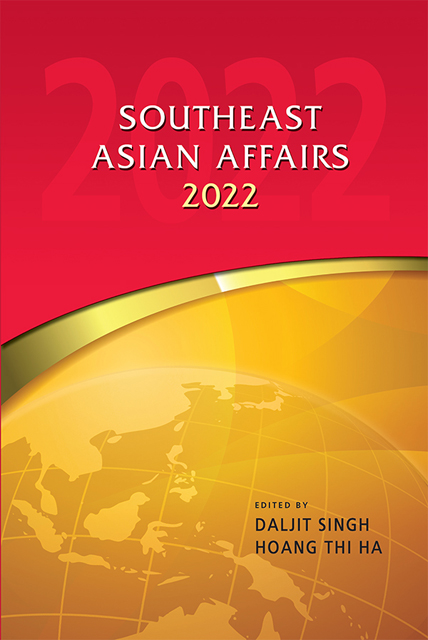Thailand in 2021 Angling towards Chaos?
Published online by Cambridge University Press: 01 September 2023
Summary
The year 2021 was the half-way point of the parliamentary term following the outcome of the 2019 general election, which had been (1) determined by an election formula favourable to Palang Pracharat, (2) monitored and enforced by the 2014–19 junta that Prayut had headed, (3) legitimized by an Election Commission that his junta had chosen, and (4) augmented by a junta-appointed Senate that helped select Prayut as prime minister. The cabinet was dominated by the same three personalities who had lorded over the country since the 2014 coup—Generals Prayut, Prawit Wongsuwan and Anupong Paochinda. Though Prayut was prime minister, he was not an elected member of parliament nor a member of any party. Prawit, deputy prime minister and defence minister under the junta, had taken only the deputy prime minister portfolio since 2019, though in June 2020 he also became Palang Pracharat party leader. Anupong was content with remaining only interior minister.
On 28 March, elections were held to select members of local municipal councils throughout the country. Then, on 28 November, there were elections for members of subdistrict councils within each province. The results of these elections, like those following the 20 December 2020 elections for Provincial Administrative Organization chairpersons and members, were favourable to traditional politicians connected to Palang Pracharat and Thaksin Shinawatra’s Pheu Thai, while unfavourable to the Progressive Movement of Thanathorn Juangroongruangkit, a banned MP and former leader of the dissolved Future Forward party. The elections suggested that local rather than national politics were still prevalent among voters. But in March, Palang Pracharat won a by-election victory over the Democrats in a constituency considered a Democrat stronghold. Thus, Palang Pracharat seemed mostly on top of the political game.However, the party’s decision to even contest the poll—let alone its triumph—enraged the Democrats, given that the latter were Palang Pracharat’s coalition partner.
Meanwhile, on 17 March, nearly a year of attempts to amend the juntaenforced 2017 constitution were stopped when the draft bill to do so was rejected by parliament. This came after the Constitutional Court ruled that there needed to be a national referendum to legally amend the charter. In June parliament passed the Referendum Bill, facilitating future constitutional amendments.
- Type
- Chapter
- Information
- Southeast Asian Affairs 2022 , pp. 345 - 361Publisher: ISEAS–Yusof Ishak InstituteFirst published in: 2023

